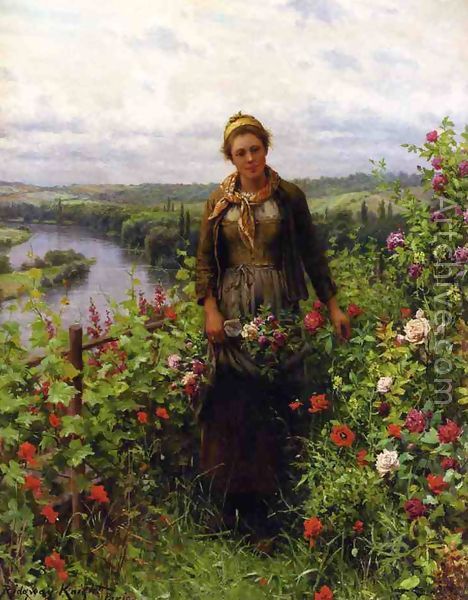John Riley è una ballata tradizionale di probabili origini seicentesche, diventata popolare negli anni 60.
Roud 264 ; Master title: The Young and Single Sailor ; Laws N42 ; G/D 5:1038 , 6:1201 ; Henry H471 , H818 ; Ballad Index LN42 ; VWML PG/5/25 ; Bodleian Roud 264 ; GlosTrad Roud 264 ; Wiltshire 375 , 884 ; Mudcat 171276 ; trad.
Molti i titoli della ballata classificata da Roud al numero 264: Pretty Fair Maid, The Maiden in the Garden; Fair young maid all in her garden; The Broken Token, The Young and Single Sailor, The Poor and Young Single Sailor.
Sebbene la versione standard sia diventata quella arrangiata da Joan Baez la troviamo abbinata a diverse melodie con piccole varianti testuali (continua)
♬John Riley (Joan Baez-Byrds) melodia standard

JOHN RILEY la versione standard
Pur essendo una ballata tradizionale è stata accreditata a Rick Neff e Bob Gibson (dei Byrds, la versione americana dei Beatles), nell’album “Fifth Dimension” del 1966.
In realtà la canzone era già stata registrata dalla folk singer americana Joan Baez nel suo secondo album pubblicato nel 1960 con il titolo di “John Riley“; le note riportano brano tradizionale, arrangiamento di Joan Baez, è la sua versione ad essere diventata uno standard.
[English version]
Although a traditional, it has been credited to Rick Neff and Bob Gibson (of the Byrds, the American version of the Beatles), in the album “Fifth Dimension” of 1966.
Actually the song had already been recorded by the american folk singer Joan Baez in her second album released in 1960 with the title of “John Riley”; in the notes she writes traditional song, arrangement by Joan Baez; it is her version to become a standard!
In questa versione il forestiero/marinaio nel corteggiare la fanciulla avanza le ipotesi che John Riley potrebbe essere stato ucciso in battaglia o naufragato nell’oceano, oppure che l’abbia dimenticata sposandosi con un’altra.
traduzione italiana Cattia Salto
I
Una bella giovane fanciulla era nel giardino
e un giovane forestiero (1) le venne vicino
“Bella fanciulla, vuoi sposarmi?”
e con questa risposta replicò
II LEI
“Oh no, gentile signore, non posso sposarvi
Poiché io ho un amore per mare,
anche se è via ormai da sette anni, (2)
e non sposerò nessun altro uomo”
III LUI
“E se lui fosse stato ucciso in qualche battaglia
o annegato negli abissi salati dell’oceano,
o magari avesse trovato un altro amore
e si fossero sposati? “
IV LEI
“Se è deceduto in qualche battaglia
io morirò al calar della luna
e se lui è annegato negli abissi salati dell’oceano,
sarò fedele alla sua memoria.
V
E se ha trovato un nuovo amore
e si è sposato con un’altra,
auguro loro salute e felicità,
ovunque vivano aldilà del mare “
VI
Lui la prese tra le sue forti braccia
e le diede uno, due e tre baci
“Non piangere più, amore mio
perchè io sono il tuo a lungo perduto John Riley”
NOTE
(1) oppure a brisk young sailor
(2) sette è un numero ricorrente nelle ballate per indicare la durata di una separazione. Il riferimento al numero sette non è casuale: è un numero magico o simbolico legato alla morte o al cambiamento. Un tempo la ferma del servizio militare durava sette anni, se un marito partiva per la guerra e non tornava entro i sette anni, la moglie poteva risposarsi.
I
Fair young maid all in her garden,
strange young man passer-by, he said:
«Fair maid, will you marry me?».
This answer then was her reply:
II
‒ Οh, no, kind sir, I cannot marry thee,
for I’ve a love and he sails the sea.
Though he’s been gone for seven years,
still no man shall marry me.
III
‒ What if he’s in some battle slain
or if he’s drowned in the deep salt sea?
What if he’s found another love
and he and his love both married be?
IV
‒ Well, if he’s in some battle slain
I will die when the moon doth wane.
And if he’s drowned in the deep salt sea,
then I’ll be true to his memory.
V
And if he’s found another love
and he and his love both married be,
I wish them health and happiness,
where they dwell across the sea.
VI
He pickes her up in his arms so strong
and kisses gave her: One, two, three.
‒ Say weep no more, my own true love,
for I’m your long-lost John Riley!
FOOTNOTES
(1) or “a brisk young sailor”
(2) seven is a recurring number in ballads to indicate the duration of a separation. The reference to the number seven is not accidental: it is a magic or symbolic number linked to death or change. If a husband left for the war and did not return within seven years, the wife could remarry.
Folk Revival
http://die-augenweide.de/byrds/songjk/john_riley.htm
https://mainlynorfolk.info/eliza.carthy/songs/theyoungandsinglesailor.html
http://ballads.bodleian.ox.ac.uk/search/title/The%20constant%20maids%20resolution:%20or%20The%20damsels%20loyal%20love%20to%20a%20seaman
